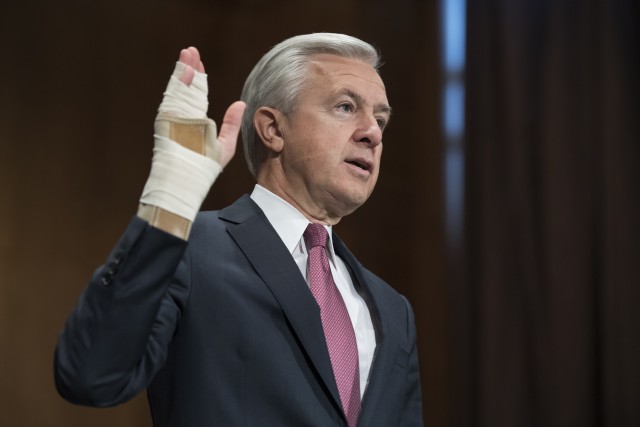Too-big-to-fail Wells Fargo, with its too-big-to-whitewash scheme of charging customers for two million bogus accounts, has done something consumer champions have seldom accomplished on their own: showing ordinary Americans that even the most respected big corporations can opt for blatant, systematic cheating if their leaders believe they can get away with it. Even the banking industry’s most reliable defenders, the Republicans on the Senate Banking and House Financial Services committees, joined their Democratic colleagues in pillorying Wells Fargo’s affably defiant CEO, John Stumpf.
On October 12, two weeks after the committee hearings ended, the members got their man. Wells Fargo announced that it had accepted Stumpf’s resignation and that he would be replaced by his CFO, Timothy Sloan.
The bank’s critics on the Hill and in the media have taken an invaluable first step by exposing the scam as no aberration but an integral component of the bank’s business model, forcing out a financial industry star like Stumpf, and triggering multiple regulatory and criminal investigations. But framing the matter as an ethical failure on the part of individual executives will not solve the underlying problem.

